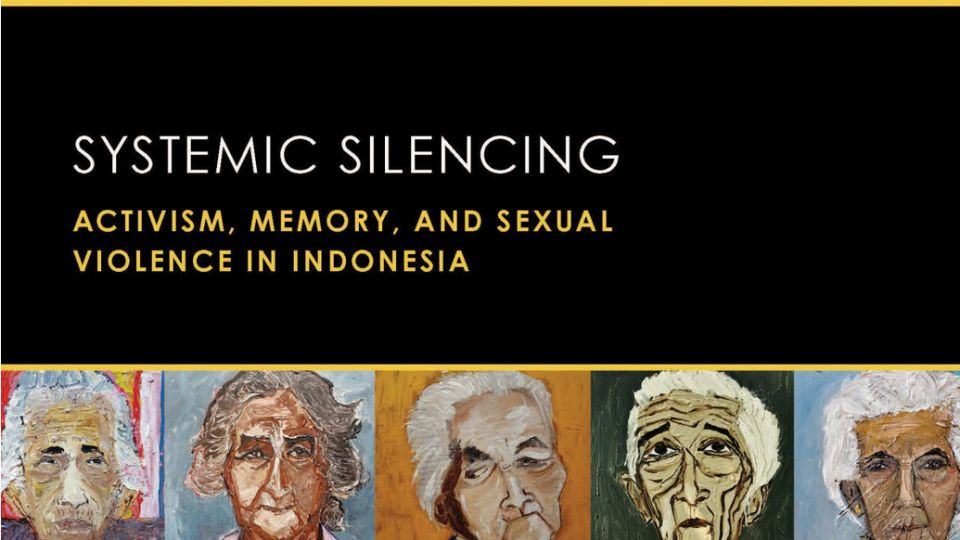May 16, 2024
PERTH – They say that history is written by the victors. This is no truer than when we think about colonialism and the way its effects have been recorded, or when we think about the power that oppressors wield, which enables them to manipulate structures and systems so that it is their stories that are told and not those of their victims.
For the average Indonesian, we can see this in the way discussions are framed around the 1965 communist purge that gave birth to Soeharto’s New Order regime, or how narratives are taught and stories passed on about the selfless acts of freedom fighters and national heroes.
These topics are typically learned by rote at school as part of the curriculum, but the less glamorous side of history receives much less attention. Discussions about the part played by Indonesia’s elite in perpetuating systems of oppression imposed by colonial rulers, for example, or the role of deep-seated patriarchal systems in determining the fate of rakyat kecil (commoners) at the time, are topics that hardly get a mention.
Systemic Silencing: Activism, Memory, and Sexual Violence in Indonesia by Katharine E. McGregor focuses on a subset of rakyat kecil, that is, lower-class women from rural towns and villages, mostly in Java, who played a significant role during the period of Japanese occupation in the early 1940s but whose presence was seemingly visible only to their oppressors. Rigorous researched in an academic style, the book takes readers on a journey spanning almost eight decades as McGregor demonstrates the plight of Indonesian women who were forced into systematic prostitution and later fought a long battle for justice with little to no success.
During its colonization of Indonesia and other parts of Southeast Asia, Japan imposed a system of enforced military prostitution based on the idea that providing “comfort women” – that is, sex slaves – was crucial to satisfying the sexual needs of soldiers and preventing the rape of local women, which would be a dishonorable thing for a ruling power to do. In her book, McGregor describes the complex web and layers of race, culture and economic status that enabled this system and subsequently sealed the fate of unsuspecting, financially destitute women typically “recruited” through deception and coercion.
Systemic Silencing: Activism, Memory, and Sexual Violence in Indonesia by Katharine E. McGregor, The University of Wisconsin Press, 2023. (Katharine E. McGregor)
After Japanese occupation ended, waves of women’s activist groups and human rights organizations from former Japanese colonies around the world established networks to seek justice in the form of recognition of trauma inflicted by Japanese soldiers, an apology and wartime redress. In the process, survivors of Japan’s enforced military prostitution from countries such as Korea gained traction in their efforts not only because they were deeply committed to the cause but because they had the support of well-resourced activists and human rights movements.
This was not the case in Indonesia, where former sex slaves were disinclined to share their experiences for fear of bringing disrepute to their family and attracting cultural or religious censure; instead, they continued to endure lifelong feelings of shame despite having been traumatized the same way women from other parts of the world had been traumatized and despite being engaged in activism many years later.
Following years of activism by transnational movements, advocacy groups and local-level legal aid organizations, two Indonesian survivors – Tuminah in 1992 and Mardiyem a year later – publicly came forward with their experiences. The Indonesian public was sympathetic to Mardiyem, who was a 13-year-old virgin at the time she was taken from her home, but Tuminah’s testimony was largely ignored after she disclosed that she was a “street worker” when the Japanese forced her into the system. Despite the courage of the two survivors in trying to seek reparations from the Japanese government, they received little support from the Indonesian government. McGregor explains that one of the reasons for this was the Soeharto government’s general disregard for human rights.
In 2001, by order of the Women’s International War Crimes Tribunal on Japan’s Military Sexual Slavery, the Japanese government offered an apology and paid reparations to survivors through its Asian Women’s Fund. However, the funds were disbursed as development aid and not as financial compensation for individual survivors. The Indonesian government later used the funds for building a nursing home, which was a great disappointment to the survivors and LBH Yogyakarta, the legal aid institute that had been supporting them over the years.
This book provides an important historical account detailing the experience of Indonesian survivors of Japan’s enforced military prostitution policy. As an academic paper, it has been extensively and methodically researched. However, its findings – about fighting for justice, overcoming shame and being cognizant of the fact that blame for sexual violence should be directed at the perpetrator and never the survivor – is too important not to be shared with a broader audience, especially the younger generations of Indonesians. McGregor writes that Mardiyem’s story has now been included in the Indonesian history curriculum (along with accounts by former romusha, or forced laborers), her memoir has been published, and Tuminah’s story has been adapted into a movie. Perhaps a historical novel based on this academic work will help young Indonesians recognize that some of the harmful systems from that dark era have not changed. Then, hopefully, they will realize they too can do something about it.


